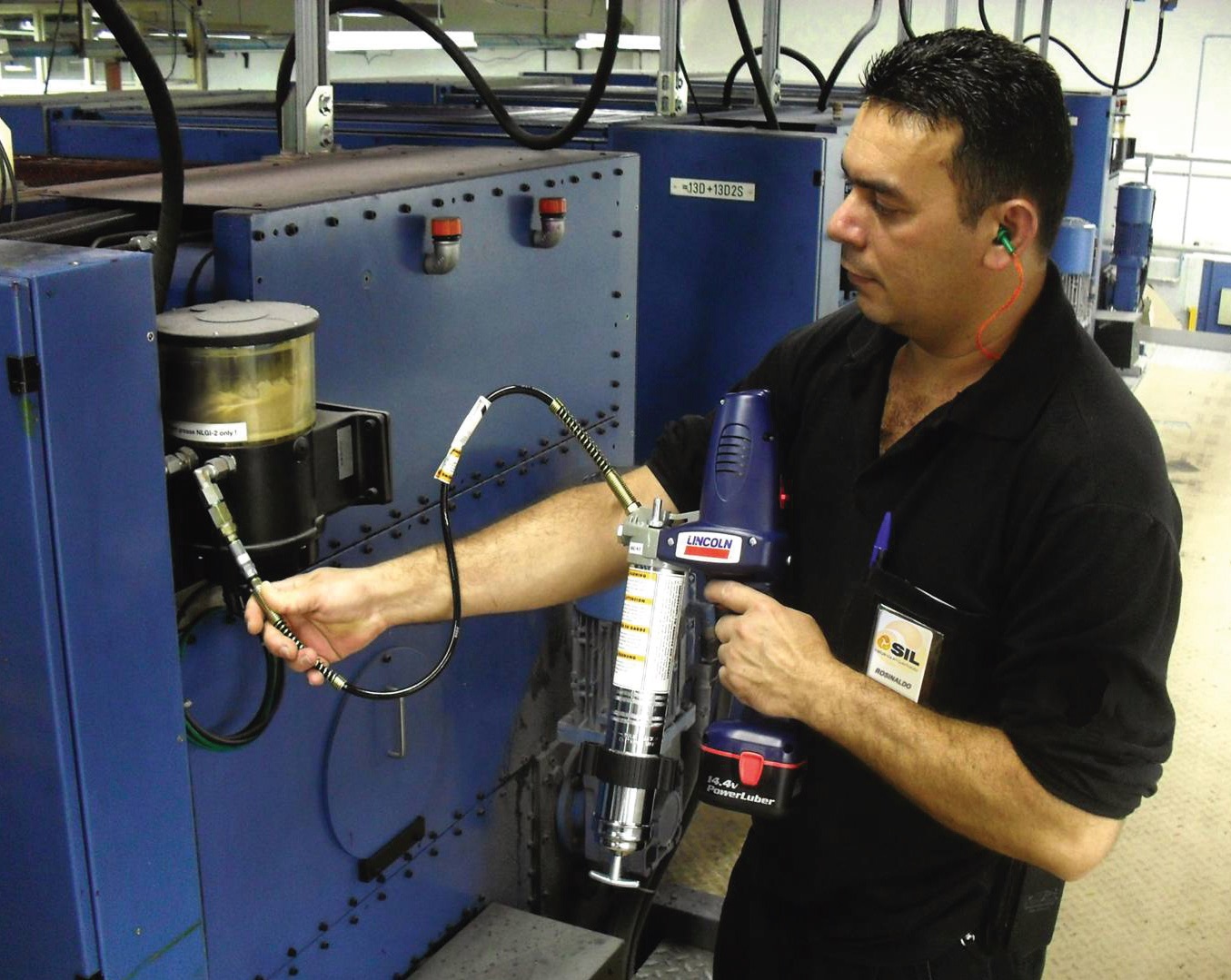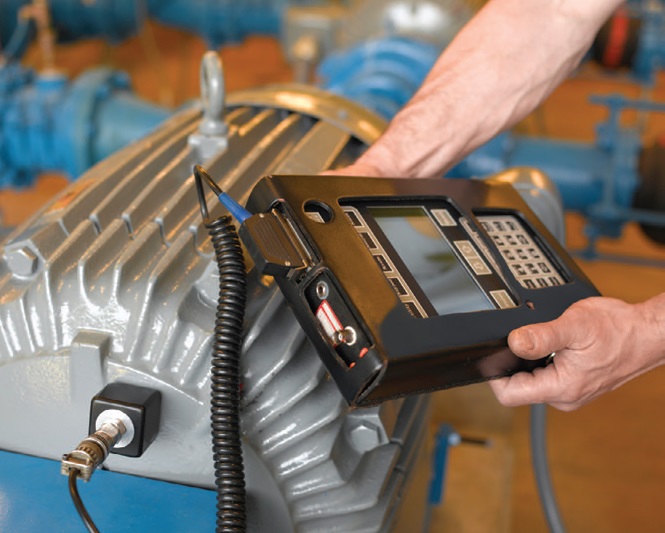Contractor-based lubrication programs
Mike Johnson | TLT Best Practices March 2011
Popular in other countries, lubrication outsourcing could find its way to North America as a turnkey solution to precision machine lubrication.

KEY CONCEPTS
•
Difficulty in finding, training and replacing high-skilled technical people is causing plant managers to consider outsourcing.
•
Lubrication contractors provide a turnkey solution that is attractive to senior management.
•
Lubrication outsourcing is big business in countries like Brazil and Australia and is spreading.
Outsourcing has become a popular idea in recent years—and not necessarily in a good way. Wikipedia describes outsourcing as the contracting of a business function to an external provider. Outsourcing has many different monikers, including offshoring, nearshoring, multisourcing and contracting.
The manufacturing of goods involving a significant amount of low-skill labor such as clothing has been the subject of strong business and political debate since the practice became accepted in the early ’70s. In recent years this business strategy has expanded to include services for general Business functions, including payroll, information-technology systems and maintenance. Outsourcing creates fewer clamors when shifted out as a measure for cost control or quality improvement and, as a consequence, is less politically divisive for management and labor. Division does occur when the high priority and highly protected union work roles are lost to outsourcing.
 Outsourcing has expanded to include services for general business functions, including payroll, information-technology systems and maintenance.
HIGH SKILL VS. LOW SKILL
Outsourcing has expanded to include services for general business functions, including payroll, information-technology systems and maintenance.
HIGH SKILL VS. LOW SKILL
As manufacturing managers evaluate their long-term labor needs and experience increasing difficulty in filling skilled labor roles, their perspective on which jobs make sense to send outside will change. Many of the jobs performed by hourly labor in union environments has already been pulled away to union or non-union service companies, including carpentry, painting, grounds keeping and janitorial roles. On the flip side of these low-tech skilled labor roles, the high-tech jobs also are moving off-payroll with sometimes contentious results. For example, the maintenance of company motorized values and actuators or water/wastewater management is specialized enough that it makes sense that work quality improvements and dependability can be achieved by having the work performed by a specialized service company—one that practices only this function.
The growing business of quantitative machine inspection falls into the category of highly technical labor. The training cycle to produced highly effective vibration, thermography, thickness testing, motor control analysis and oil-based condition analysis technicians is fairly long, and the competition for these skilled technicians is intense. Plant and production management faces a choice of either accepting a continuous time and resource drain to find, train and replace these skilled positions or task a specialist company to do the same.
Progressively, the later choice is being made. In addition to very large whole-operation contractors such as Fluor, Halliburton and Unicco, several Fortune 1,000-sized companies have built their own in-house specialist departments that travel to sister-plants and other customer sites to delivery these work functions.
SKF reliability Services, Duke Energy, General Electric and Siemens all provide a variety of specialized services to the market. These high-skill-level service providers will, I believe, increasingly be tasked to provide turnkey programs as plant owners become more relaxed about sending this type of work role outside.
This is a long introduction for something that has very low exposure in North America but is big business in Australia, Brazil and likely other countries as well: Contracted plant lubrication services.
 Machine lubrication could be divided into routine tasks performed while the machine is running or has been shut down and non-routine tasks performed during outages and inspections.
WORK ROLES
Machine lubrication could be divided into routine tasks performed while the machine is running or has been shut down and non-routine tasks performed during outages and inspections.
WORK ROLES
Following the notion offered above about technical vs. nontechnical work roles, many managers underestimate the value that the lubrication technician can provide because they have understaffed the role and receive low value in its current state. One only needs to look at the amount of knowledge that must go into a reliability centered lubrication plan to realize this work role is indeed highly technical and on par with work complexity delivered by mechanics, millwrights, machinists, hydraulic specialists, electricians, etc.
Machine lubrication could be divided into routine tasks performed while the machine is running and also after the machine has been shut down (for the task at hand), non-routine tasks performed during outages and inspection/analytical activities.
Routine tasks while running include greasing the bearing (the traditional action that comes to the manager’s mind when the question of work complexity arises—how hard can this be?), checking and topping oil reservoirs, changing filters and making minor repairs. Routine tasks performed while the machine is momentarily idle include roles that cannot be performed safely while running and level checks that require the machine to be idle for level check and inspection.
Non-routine tasks include:
•
System flushing
•
Cleaning
•
Charging and run-off cleansing
•
Coupling cleaning
•
Inspection, repacking and light repair
•
Tank flushing and repair
•
Oil drains and recharges
•
Bearing housing cleanout and repacking
•
Installing quick-connect couplings and fixed sample ports
•
Repair of automatic lines and fittings and general mechanical inspection
•
The myriad of other things done during annual outage events.
Inspection and analytical activities include the many cursory mechanical inspections performed during routine work and should include oil sample collection, perhaps on-site testing, ultrasonic bearing analysis and strobe-based inspection.
While these discretely are not complex, there are many details that must be understood and remembered to deliver a quality end result. This inherent complexity, the sheer number of technically-oriented actions, makes the role of the lubrication technician more similar to skilled than non-skilled labor—
if the candidate has the ability to learn, and grow with the role.
VALUE PROPOSITION
This type of contracted in-plant support is common in Brazil and Australia, with several local service companies employing thousands of engineers and mechanics in turnkey contracts. Mauricio Preto operates Sil Lubrificação, a 400-employee, 15. 0-million reals annual sales company that has served manufacturing in Brazil for 20-plus years and is headquartered in Sao Paulo, Brazil.
From Preto’s perspective, the central value propositions for turnkey contracted program management are:
•
Improved process quality
•
Reduced direct cost
•
Improved machine performance
•
Improved company results.
According to Preto, “The plant manager is trying to achieve full plant capacity to meet company performance goals without investing additional capital in machines. The maintenance manager is expected to help achieve this objective, but he is frequently overwhelmed with instant demands and daily events and needs time to focus on strategic changes to assure maximum machine performance. If a specialist can be found to take over the entire process and be effective, then the maintenance manager can look to other needs.”
Lubricant suppliers also are involved in improvement and development, but, per Mr. Preto, the lubricant supplier’s responsibility is to assure product performance. “This source of free help is generally called on first, but in the end the product supplier focuses on the lubricant itself, and often the problems end up back on the managers’ desks, leaving them facing the problem again. Product changes sometimes help, but in the end it isn’t enough. Product changes do not have any influence on system weaknesses, including lubricant handling, application activities, inspections and contamination control.
“Eventually senior management looks for technical service companies like Sil Lubrificação that are able to address the entire program, solving behavioral and product performance challenges to maintain machine reliability and performance.”
PROGRAM DEVELOPMENT STEPS
When an agreement is reached, the supplier assumes responsibility to start the new approach. A new plant startup has a few additional responsibilities over a conversion at an existing operation. Actions expected when assuming responsibility for an existing plant would include:
•
Both contractor and company establish program strategic goals and objectives and tactics needed to accomplish those objectives.
•
Both contractor and company define key performance indicators that are measurable and used to grade the effectiveness of the plan.
•
Contractor surveys the plant site, component by component, and collects detailed information on each component, speed, load and operating conditions.
•
Contractor develops work practices. These become the basis for agreement of work scope.
•
Company manages lubricant purchase, handling, delivery and equipment upgrades necessary for machine improvements.
•
Contractor constructs the work schedules, balancing each schedule with the right workload (typically done with a computerized scheduling program).
•
Contractor and company interview and hire new technicians.
•
Contractor provides training for general knowledge and machine-specific actions.
•
Contractor establishes documentation practices for work completion (part of the computer program).
•
Contractor establishes plans to conform to site safety program.
•
Contractor and company launch the program.
Where a greenfield plant build is underway, decisions also must be made around product purchases, including:
•
Estimating net machine sump capacity.
•
Establishing a plan for initial fill and cleansing (roll-off cleanliness).
•
Defining a list of products to be used and their respective volumes.
•
Convening supplier candidates and publishing a bid.
•
Interviewing candidates for:
a.
Financial qualifications to meet the delivery requirement
b.
Physical plant overview
c.
Service offering review (if services are expected)
d.
Product offering review
•
Comparing the results and verifying that service and delivery portions are appropriately weighted with price for vendor selection.
•
Selecting the vendor.
•
Ordering and beginning to receive products for implementation.
SUMMARY
Outsourcing of production and maintenance activities has become a central point of competitiveness for companies around the world. Contract lubrication is relatively new, but it is a growing element of services used by manufacturers in Brazil, Australia and likely other countries as well. Site managers are motivated to source this service role in an effort to improve plant productivity through improved program quality and machine reliability and possibly reduced cost.
Safe and dependable agreements begin with a clearly defined set of job responsibilities for each lubricated component under contractor care. Without a clearly defined technical work plan, machine owners and contractors alike will lack clarity on ownership of program responsibilities.
 Mike Johnson, CLS, CMRP, MLT II, MLA III, is the principal consultant for Advanced Machine Reliability Resources, in Franklin, Tenn. You can reach him at mike.johnson@precisionlubrication.com
Mike Johnson, CLS, CMRP, MLT II, MLA III, is the principal consultant for Advanced Machine Reliability Resources, in Franklin, Tenn. You can reach him at mike.johnson@precisionlubrication.com.